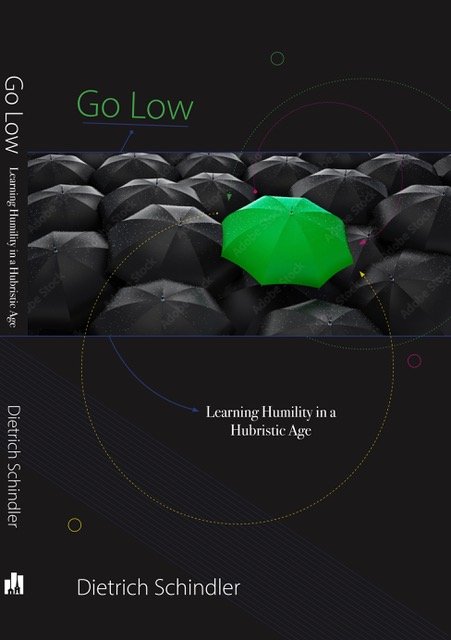Chapter Six - Bending Down
Chapter Six
Bending Down
“What you tell me about in the nights. That is not love. That is only passion and lust. When you love you wish to do things for. Your wish to sacrifice for. You wish to serve.”
- Ernst Hemingway, A Farewell to Arms[i]
I doubt if I would have been born save for Germany’s defeat at the end of the Second World War to Allied forces. My parents, both born and raised in Germany, hailed from opposite ends of the country. My father was born in a small village in western Germany in the Black Forest region, close to the French border. My mother, however, was born in Silesia which was on the eastern fringe of the country.
In 1944-45 the Russian Red Army was making significant advances into German territory. The leaders in my mother’s small village heard rumors that it would likely be a few weeks at most until the enemy had reached their village. Horror stories abounded about what enemy soldiers did to young girls. The leaders decided that the village would collectively flee to the Sudetenland in the Czech Republic until it was safe to return. They left on February 10, 1945 hoping that they would be gone just for three weeks, until the danger had abated. Three-hundred-and-fifty villagers, my mother, who was thirteen at the time, her older sister, their mother, and father were among them. They never returned.
They lost everything. They lost their house, their land, and their thriving wholesale fruit and vegetable business. Perhaps most significantly they lost their beloved Schlesien, their homeland.
My grandfather’s truck was loaded down with their most precious possessions. They were on their way back to my grandfather’s family in the Black Forest where there would be food, shelter, an extended family, when German troops confiscated the truck (needed if the Wehrmacht was to succeed). The four of them continued westward on foot, eating old potatoes, and sleeping in barns, open fields, or if fortunate on the floors of hospitable strangers.
Malnourished, sick, weary to the bone, after nine months of trekking they were welcomed by family in the Black Forest. Here they began a new life, in what was for my mother, her sister, and my grandmother a new dialect, a new religious environment (they were Lutheran, but surrounded by Roman Catholics), and new beginnings.
My grandparents found employment for their young teenage daughter in the small castle estate of the Baron and Baroness of Diersburg near Offenburg. Despite earning a small weekly wage that she gave to my grandparents my mother was essentially an indentured servant, working for food and lodging. She served the Baroness which meant dressing and undressing her, bathing her, being at her beck and call. A bell would ring, and the Baroness would call out “Fräulein Thea!” My mother jumped up from where she was and ran to royalty calling. It was bone-wrenching work from early morning to sometimes midnight. She was also expected to clean, wash, serve meals, and watch over their firstborn son.
Servanthood took a toll on my mother. She remained sickly plagued by an unyielding cough, looked pale, and lost even more weight. After a year of service my grandmother mercifully put an end to her daughter’s employment.
A couple of years later my parents met on a dance floor, courted, were engaged, and married before immigrating to Milwaukee, Wisconsin in 1955 journeying on the Queen Elisabeth to New York. I was born three years after they reached the promised land. I doubt if I would have been born had Germany not lost the war.
Servanthood took a toll on my mother. It will take a tool on us. It certainly took a toll on the “Son of Man (the King - not a baron!), who “did not come to be served, but to serve, and to give his life as a ransom for many.” (Mk 10: 45, NIV).
When the Apostle Paul sent his business card to the church in Rome, otherwise known at the book of Romans, he was writing to people he had not yet met. But he was on his way there to stand trial before Caesar. In chapter one of Romans Paul introduces himself by highlighting five things that defined him, the first of which was servanthood: “Paul, a servant of Christ Jesus, called to be an apostle and set apart for the gospel of God” (Ro 1: 1, NIV). Our English word “servant” is the Greek word doulos. Most commentators tell us that about 75% of the church at Rome was made up of Gentile Christians who were slaves. They were not indentured servants (like my mother was) but slaves – without freedom, income, or independence. They belonged to their masters indefinitely. Ironically the first thing that Paul, a Roman citizen and therefore a free man, says is that he is as they are, a slave of Christ Jesus.
Paul was in great company because doulos is the word that Jesus used to describe himself when he offered us his business card. As we consider Jesus in going low, we must consider the King as a slave to his Father come to serve us.
Jesus knew he was the delight of his Father. “You are my Son, whom I love; with you I am well pleased”, said his dad (Mk 1: 11, NIV). Conversely, Jesus loved his Father. “The world must learn that I love the Father and that I do exactly what my Father has commanded me” (Joh 14: 31). Love is behind Jesus bending down becoming a servant.
[i] Ernst Hemingway, A Farewell to Arms. New York: Bantam Books. 1955, 55.
